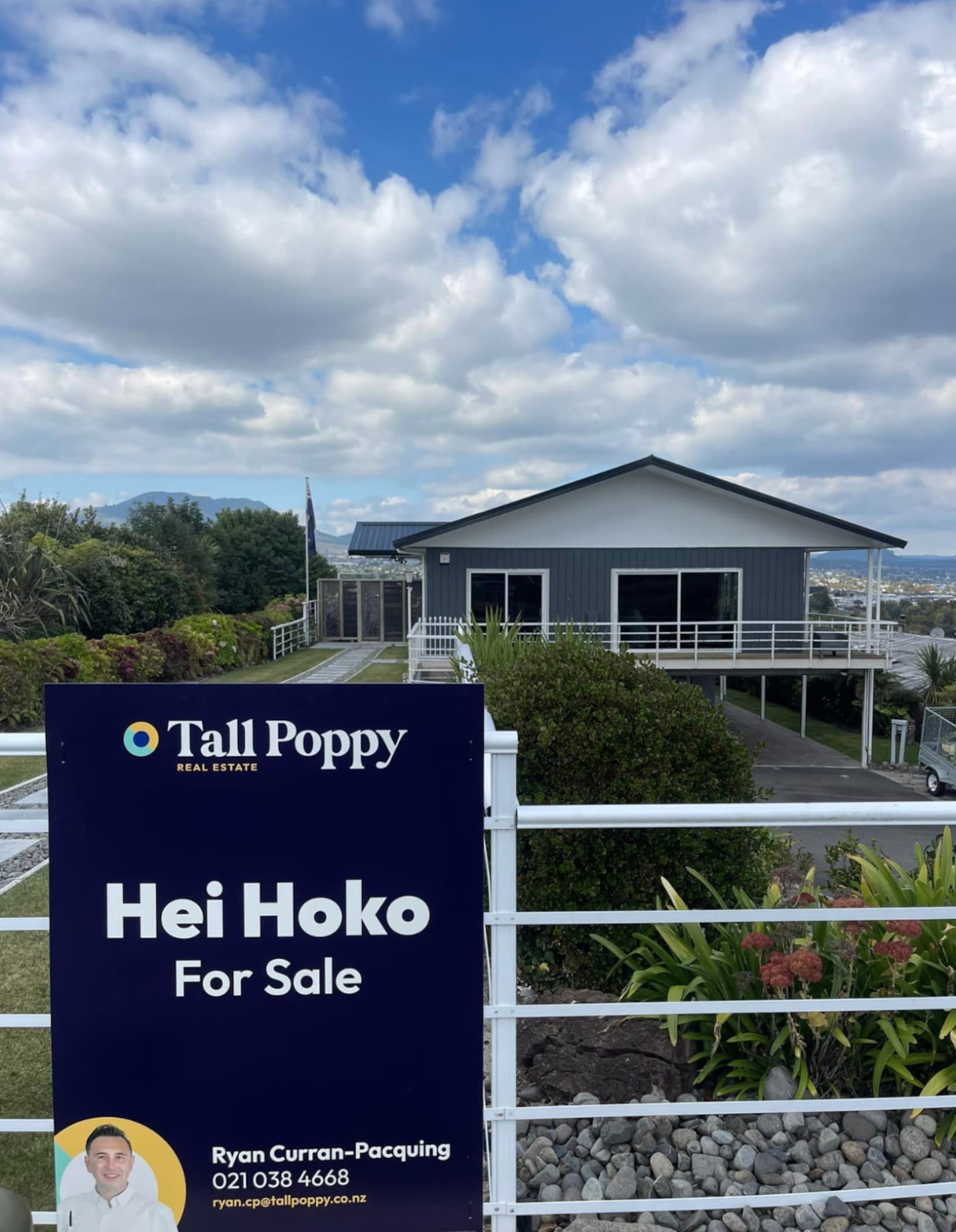Vendors selling properties through real estate chain Tall Poppy are now being offered a choice of te reo or English signage.
Chief executive Michael Seymour said the idea came about during a wider rebrand process for the agency.
“One of the things that was thrown up was why are we not using both our languages in our signage?”
Seymour said he had been surprised at how well received the change had been.
The business had also made changes such as switching out coreflute signs for recyclable plastic options, and he had thought they would have had more of an immediate impact.
But vendors had been extremely positive about the language option, he said.
“As part of the rebrand it was a massive colour change, tone of voice change, and this. Once we rolled the signs out, it hit a chord.
“There was a bit of trepidation and fear - communities in New Zealand are quite diverse but they’re diverse across the whole country. A lot of communities are concentrated ... some areas are densely populated in Māori or other cultures... we’ve got quite a number of places we work where they’ve got a really cool regional New Zealand open-minded Kiwi attitude and they’ve just embraced it.”
In 2022, it was reported that Auckland salesperson Tama Emery, who is with Harcourts, also had a positive reaction to his use of te reo and tikanga Māori to sell real estate.
Marketing expert Bodo Lang, from Massey University, said, quite apart from any social drivers, it made good commercial sense for businesses to embrace te reo.
“Let’s not forget, Māori make up a significant slice of the population and some tribes are exceedingly successful in their ventures, including property. Many real estate agencies will be highly motivated to have a slice of this lucrative business. Being seen to show an interest in te reo and in Māori is a likely necessary starting point before any commercial discussions can commence.”
But he said businesses would need to be careful that they did not set themselves up to be accused of “jumping on the bandwagon” solely for commercial reasons.
“Whether real estate agencies adopting te reo will be seen as a superficial or deep-seated, will depend on how serious agencies are in their efforts with te reo and whether they will change their internal and external conduct. If not, then this may be yet another example of ‘culturewashing’: pretending to be supporting an ethnic group and their cause without authentically doing so.
“In the end, whether the move to te reo will be a success or not will play out in consumers’ heads. If the move is seen as authentic, it will likely succeed.”


